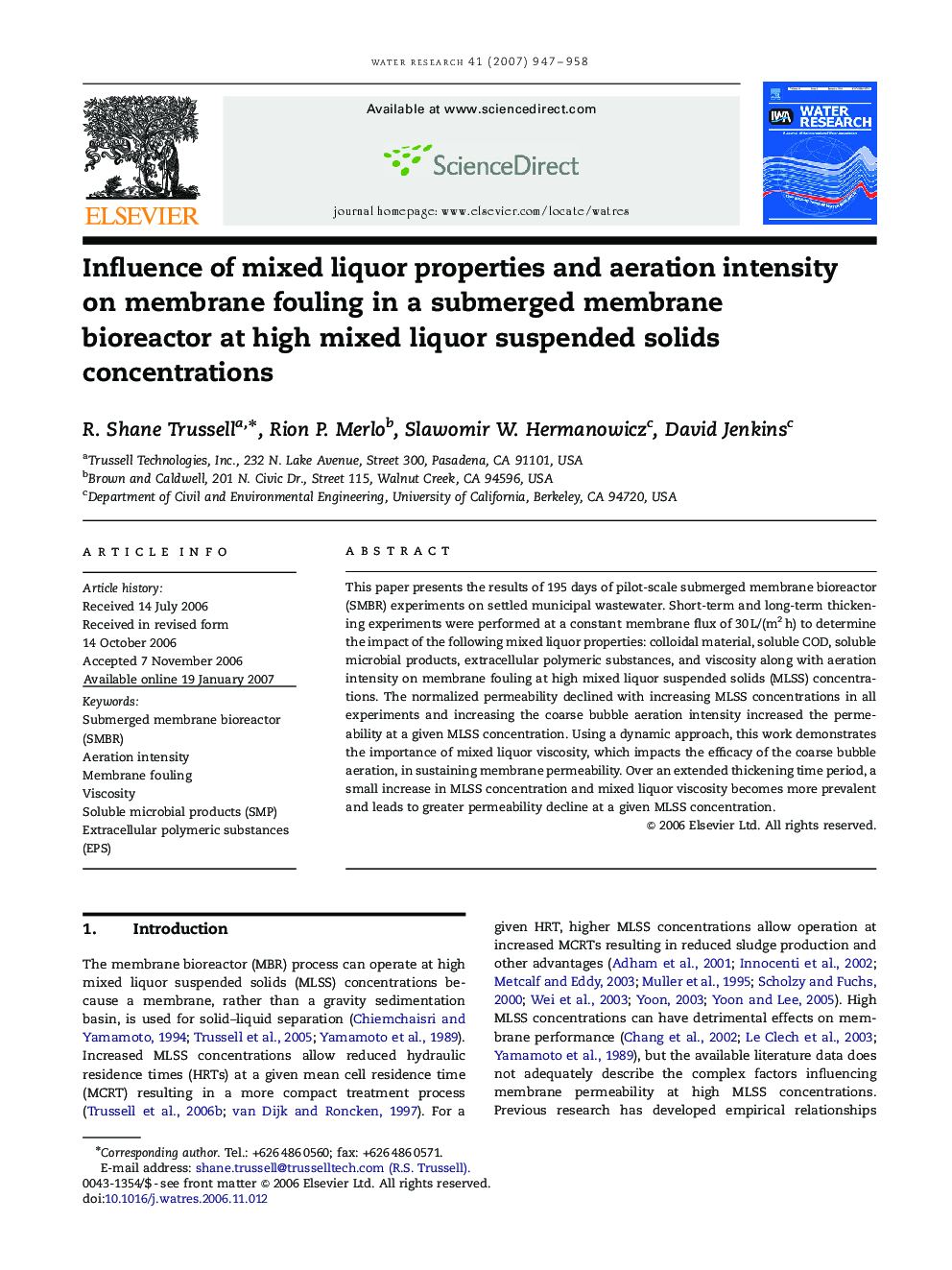| Article ID | Journal | Published Year | Pages | File Type |
|---|---|---|---|---|
| 4486613 | Water Research | 2007 | 12 Pages |
This paper presents the results of 195 days of pilot-scale submerged membrane bioreactor (SMBR) experiments on settled municipal wastewater. Short-term and long-term thickening experiments were performed at a constant membrane flux of 30 L/(m2 h) to determine the impact of the following mixed liquor properties: colloidal material, soluble COD, soluble microbial products, extracellular polymeric substances, and viscosity along with aeration intensity on membrane fouling at high mixed liquor suspended solids (MLSS) concentrations. The normalized permeability declined with increasing MLSS concentrations in all experiments and increasing the coarse bubble aeration intensity increased the permeability at a given MLSS concentration. Using a dynamic approach, this work demonstrates the importance of mixed liquor viscosity, which impacts the efficacy of the coarse bubble aeration, in sustaining membrane permeability. Over an extended thickening time period, a small increase in MLSS concentration and mixed liquor viscosity becomes more prevalent and leads to greater permeability decline at a given MLSS concentration.
